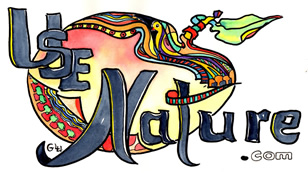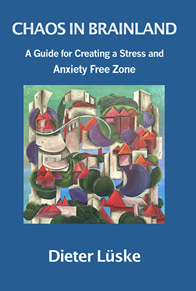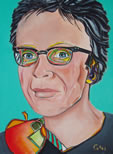useNature.com ... Holistic Health - Emotional Choice Counselling
Emotional Choice Counselling
Anger - Overwhelmed - Hope - Anticipation
Lifestyle Online Magazine - Holistic Health Information
Article: The "Functional" Meaning of your Emotional Message

Article extracted from a workshop & book called:
DO YOU BELIEVE IN YOU - by Dieter Luske© - Gold Coast
... all following articles, are written as workshop manuscript
... questions were asked to stimulate active participation.
ARTICLE NUMBER - 22 - Chapter 3
The "Functional" Meaning of Emotions - (Emotional Message)
EMOTIONS AND THEIR FUNCTIONS
How to help emotions of Anger - Overwhelmed - Hope - Anticipation
- NEW BOOK - NEW BOOK - NEW BOOK - NEW BOOK - NEW BOOK - NEW BOOK - NEW BOOK - |
| NOTE FOR PRACTITIONERS: Combining Natural Therapies with Counselling modalities is what a Holistic Health is all about. - The Chaos in Brainland Book addresses this issue and provides a wide array of counselling techniques suitable to enrich a Holistic Natural Health Clinic for practitioners and patients alike. - BUY NOW |
ANGER
Anger, how often have you heard, "don't be angry" or "don't get angry?"
Are you carrying a load of suppressed anger around with you, waiting for a situation to explode, (probably at a person who has no idea what is going on)?
THE POSITIVE FUNCTIONS of anger are quite a few, starting with the main underlying message that someone or something has violated your personal standards.
Anger tells you, that you have to do something to protect your personal wellbeing right now or prevent the abuse against you in the future.
Whenever you feel anger, please listen to its message and find out, who or what has violated your personal standards and make sure you do something about it. If your same standard gets violated again and again, and you still haven't done anything about it, you probably feel that your anger is getting stronger, which is O.K., the only danger is, that your reaction now may become an over-reaction.
There is another important positive function of anger.
Anger simply could mean that you are not getting your message across, you feel mis-understood.
So, what do you do about this?
Quite simply, remember: if you do what you always do, you get what you always get?
O.K., do something else, change your message, it is as easy as that.
Change does not mean to get louder, it means to change the content, the words or the behaviour altogether.
Like hate, you can use anger to motivate you into action.
Do you get angry about politics, or the cutting down of rainforests?
Please, get angry, and use your anger as a motivation to do something about it.
THE NEGATIVE FUNCTION of anger is in reacting with anger again and again without changing anything; not getting your message across; or simply over-reacting.
Getting angry without a reason is an over-reaction.
Staying with your anger will make you the victim, as you are not learning from your emotion.
And finally, there is one more kind of anger, which belongs to the negative function. It is secondary anger; anger as a reaction to a primary emotion (such as fear).
An example would be, when a parent gets angry at a child falling down the stairs.
In feeling and expressing the first emotion of fear or sorrow, anger would not develop. Only by not expressing the primary emotion will the secondary emotion surface.
Your reaction of anger will not be understood by your child, showing love certainly would.
OVERWHELMED
This emotion lets you know that you have had enough, and you can't cope anymore with what you have on your plate. It is the result of attempting too much for your own good in a set period of time. It is the feeling that all of a sudden everything becomes too much to handle.
THE POSITIVE FUNCTION of being overwhelmed is that it tells you that you have to stop, have a cup of tea and make a list of what you actually have to do in a set period of time, like today. You have to plan and organise your day, your week or even your whole life, re-evaluate your priorities.
This emotion is about learning to see your day or life in little steps or chunks.
As you well know, you have to take one step at a time. Which, in other words, simply means, be in the present, be aware and do what you have to do now.
As you do that, don't shift your awareness to all the other things you have to do, as that would just take your energy and concentration away from what you are presently doing.
Organise your day in manageable steps or chunks.
Chunking is the sensible technique of taking something big and breaking it up into little manageable chunks. So, chunk down your overwhelming task into various small chunks and concentrate only on working at one chunk at a time, starting with the most important (or with the most practical one for the situation). Continue till all chunks are worked out.
If you have a problem of not knowing what to do when, or the other way around, then use the chunking backwards method. That makes sure you get everything in the right functional order without missing anything.
By asking yourself "and what comes before that," you will find the correct sequence for an overwhelming and complicated task.
For a day plan, this could mean starting at night, asking "and what comes before I have my dinner?" That is the way you work your way through to the present moment.
This is also a terrific method for investigating a specific skill or for laying down your goals. The idea behind going backwards is, that you have to concentrate more, which ensures that you don't miss anything.
THE NEGATIVE FUNCTiON of being overwhelmed is by giving in to panic and thus becoming the victim of that emotion. You are not organised, not chunking down and therefore you are not learning.
HOPE
The emotion of hope is often used carelessly as an empty word, misunderstood and used in the wrong context.
Hope is a "Passive Emotion", it does not trigger any action.
That is why it is so important to understand the functional aspects of an emotion. Let us look at the positive and negative functions once again.
THE POSITIVE FUNCTION of hope is just that, there is still hope.
Therefore use the word and the emotion for situations which are out of your physical control. This is the key-point, you have no control, that is why you hope, as you can't do anything else.
THE NEGATIVE FUNCfION of hope is used more often than the positive one. It is mostly used in situations where you have control and could take action, but by using hope you are paralysed in passive behaviour.
Let me give you an example. If you hope to find a job, you may as well hope the rest of your life. By sitting at home and hoping that the job comes to you, you have become a victim.
Try it yourself, how does it feel, to hope for a job?
Try something else, try the emotion of anticipation.
Anticipate getting a job, how does that feel? More positive? Does that propel you into action?
The biggest victim position is to hope that things get better; things like the economy or peace or the environment etc.
Remember, hope is passive, it does not help you, so don't use it to stop yourself from taking positive action or to excuse you from feeling guilty, because of not acting!
ANTICIPATION
Anticipation is the emotion you could use instead of hope when you can do something to influence the outcome.
THE POSITIVE FUNCTION of anticipation is to help you to prepare for your future instead of waiting for it or hoping it will happen. Some people wait their life away.
If you want a job, you had better anticipate it, as this will give you the motivation and action you need to go out and get yourself that job.
THE NEGATIVE FUNCTION is to anticipate something over which you have no control.
You fool yourself when anticipating a lottery win and you become a victim when keep on anticipating. In that instance, hope is all you can do, but definitely don't depend on it happening.
Although there are many more emotions, this is where we stop. I am sure you can work out other functional aspects of any emotion you are confronted with.
Your emotions are like a caring friends who let you know about situations in your life that you need to respond to in a proper or even creative way.
The value of an emotion can't be measured by how pleasant or unpleasant it is, but only by the outcome it can achieve. Sometimes, you don't like to hear what your friend is telling you, but deep inside yourself you know it to be right.
The functional aspects of emotions have given you the awareness to get the most out of your emotions. Failing that, it will help you to be aware when you use a negative function, and therefore enable you to choose a more appropriate emotion.
The next chapter will get you even closer to true emotional choice.
Article provided by the Editor - Dieter L.
Excerpt from a workshop & book - published 1993 - titled; "Do you believe in You" www.usenature.com - Dieter Luske ©
Next: Article 23 - click > Activating Emotional Choice
or go back to the Article Menu > Self Help Article Menu
Buy Now
It happened in the seventies
A Memoir of Love, Colliding Worlds and a House on a Hill
Intriguing story of personal risk-taking, self-discovery and profound change.
Dieter Luske
author . writer . editor




